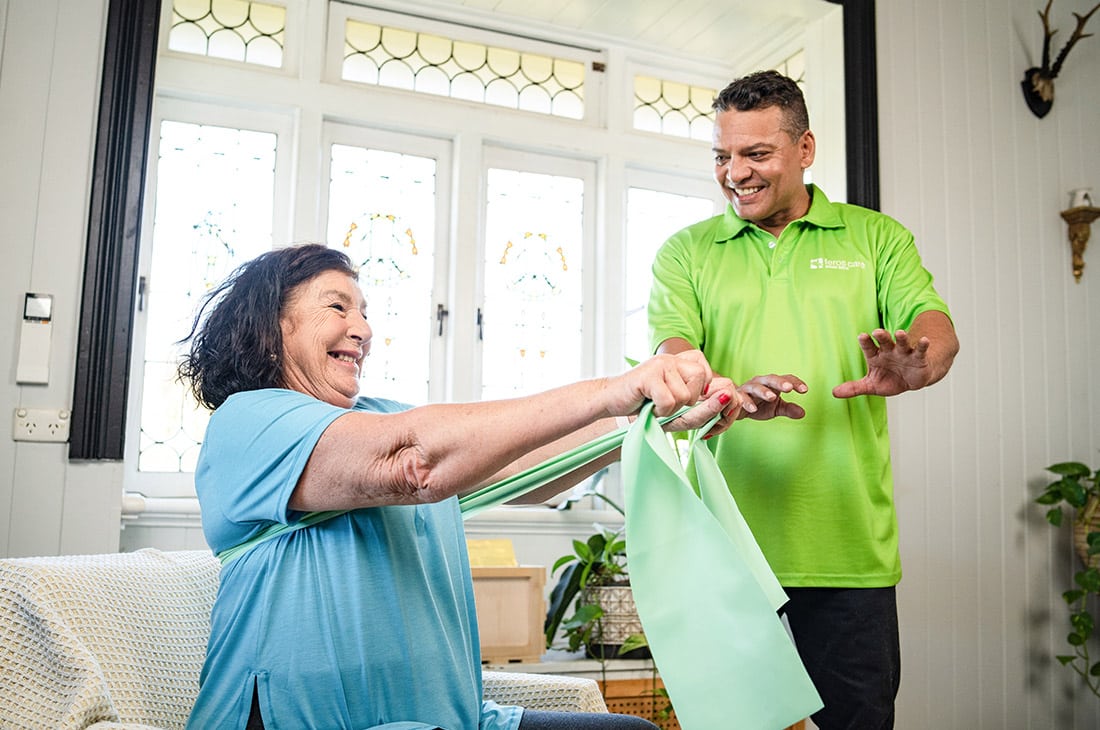Comprehensive Home Care Providers Australia: Incorporating NDIS Support Coordinators and Caregivers
Comprehensive Home Care Providers Australia: Incorporating NDIS Support Coordinators and Caregivers
Blog Article
Exactly How In Home Care Givers Address the Distinct Difficulties and Psychological Demands of Families Looking For Assistance for Their Loved Ones
At home caregivers play a pivotal duty in browsing the intricacies encountered by family members looking for support for their enjoyed ones. By recognizing unique family members characteristics and providing customized psychological assistance, these professionals not only address immediate care demands but additionally promote an environment of trust fund and open communication (home care providers australia).
Comprehending Family Members Dynamics
Recognizing family members dynamics is crucial for providing reliable in-home care, as each family runs within an one-of-a-kind set of relationships and communications. These dynamics incorporate different aspects, including interaction designs, functions, and power structures that affect how care is delivered and received. The caregiver should recognize these elements to ensure that care plans straighten with the household's assumptions and values.
Various families may display unique patterns of interaction, such as collaborative approaches or ordered structures. In some family members, a key decision-maker might hold significant influence, while in others, choices might be more democratic. Understanding these patterns helps caregivers tailor their techniques to fit the household's details needs.
Furthermore, social histories play a crucial duty in forming family dynamics. Caregivers should be culturally qualified, acknowledging and appreciating varied practices and beliefs that may influence care choices.
Eventually, a thorough understanding of family members characteristics promotes enhanced interaction, fosters trust fund, and boosts the caretaker's ability to sustain the household properly. By acknowledging the intricate internet of duties and relationships, caretakers can produce a helpful setting that promotes well-being for both the private obtaining treatment and the household as a whole.
Offering Emotional Assistance
Providing psychological support is a necessary element of in-home care that dramatically enhances the well-being of both the individual getting treatment and their relative. In the context of caregiving, emotional support entails energetic listening, empathy, and recognition of sensations. Caregivers are trained to identify the emotional battles that households encounter, such as anxiousness, shame, and seclusion, and to give a caring presence that eases these concerns.
By promoting open interaction, caregivers produce a secure space for member of the family to share their worries and concerns. This discussion not only urges emotional launch but additionally strengthens trust between the caregiver and the family. In addition, caregivers can offer sensible approaches to help family members handle tension and advertise strength.

Inevitably, the psychological assistance provided by at home caregivers boosts the top quality of life for both customers and their households, promoting a more thoughtful and understanding caregiving setting. This alternative technique makes sure that emotional needs are resolved together with physical health and wellness considerations.
Taking Care Of Daily Care Tasks
Handling day-to-day care jobs is a vital aspect of at home treatment that guarantees people get the support they require to maintain their health and wellness and independence. Caregivers play an essential function in aiding with activities of day-to-day living (ADLs), that include showering, dressing, grooming, and dish preparation. By tackling these obligations, caregivers help minimize the physical and psychological problems that family members might face while taking care of their enjoyed ones.
Along with personal care, caregivers are additionally entrusted with medication administration, guaranteeing that customers follow prescribed does and timetables. This oversight is essential for preserving wellness and protecting against unfavorable results from missed out on or wrong medications. Additionally, caretakers usually assist with movement, giving support for clients relocating around their homes, therefore reducing the danger of drops and enhancing overall security.

Cultivating Open Interaction
Effective monitoring of everyday care jobs commonly rests on the top quality of interaction between caretakers, customers, and their families. Open up interaction promotes an atmosphere where issues, preferences, and feedback can be openly exchanged, guaranteeing that care is customized to satisfy individual demands. Caregivers ought next page to focus on routine check-ins with both clients and their families, promoting conversations that deal with any concerns or modifications in care requirements.
Making use of various communication methods-- such as face-to-face meetings, call, and written updates-- can boost understanding and give families with comfort. It's necessary for caregivers to actively listen, showing compassion and respect for the psychological landscape of the household. Motivating inquiries from relative can also assist clarify treatment strategies and enhance the caretaker's dedication to openness.
Moreover, maintaining open lines of communication allows caretakers to acknowledge and react without delay to any kind of shifts in a customer's wellness condition or psychological well-being. This aggressive technique not only enhances the caregiver-client vibrant but likewise encourages households to get involved proactively in the care process. Eventually, fostering open communication is important for enhancing the high quality of in-home treatment and advertising an encouraging ambience for all entailed.
Building Trust and Relationships
Trust is the keystone of successful in-home care, as it develops a foundation for meaningful connections in between caretakers, customers, and their households. Building this count on needs constant, clear communication and a genuine commitment to the health of those entailed. Caretakers need to demonstrate dependability through preparation, adherence to care plans, and responsiveness to the needs and choices of customers.
To promote count on, caregivers should take part in energetic listening, making certain that households feel listened to and recognized. This includes not only addressing prompt worries however also preparing for future requirements, thus empowering family members and improving their sense of control. Creating connection via shared experiences and considerate interactions can additionally strengthen these connections.
Furthermore, caretakers should be trained to acknowledge and address the psychological complexities encountered by families. By revealing empathy and concern, they can minimize unpredictabilities and worries, reinforcing trust. Routine updates and check-ins with relative can likewise improve openness, permitting them to really feel involved and educated concerning their liked one's treatment.
Eventually, building count on and nurturing partnerships in at home treatment is a collective process that substantially impacts the high quality of treatment offered, promoting an encouraging environment that profits every person involved.
Final Thought
By comprehending family members dynamics, offering psychological assistance, and fostering open interaction, caretakers improve the general caregiving experience - ndis support coordinator. Their ability to take care of day-to-day treatment tasks while building count on and strong connections cultivates a supportive environment for clients and their families.
Understanding family dynamics is crucial for offering effective in-home treatment, as each family members operates within a distinct set of interactions and partnerships.Supplying emotional support is an important helpful resources part of in-home care that dramatically boosts the health of both the specific obtaining treatment and their family participants. By taking on these responsibilities, caregivers aid ease the physical and psychological worries that households may encounter while caring for their loved ones.
Reliable administration of day-to-day care jobs commonly hinges on the top quality of communication in between caretakers, customers, and their households - home care providers.Depend on is the cornerstone more info here of effective at home care, as it develops a structure for significant partnerships between caretakers, customers, and their families
Report this page